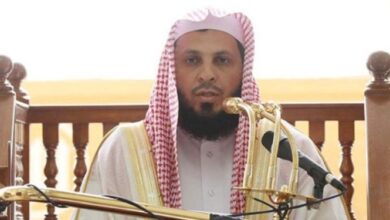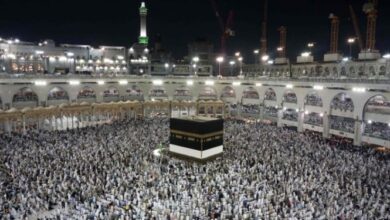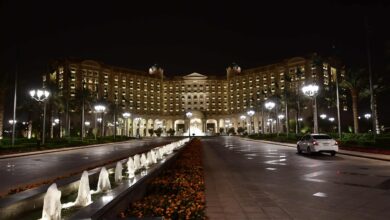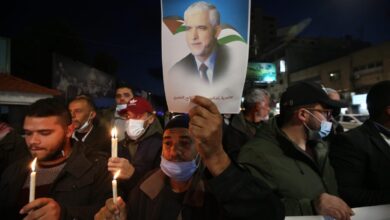Saudi regime arrests an advocate and threatens opponents abroad
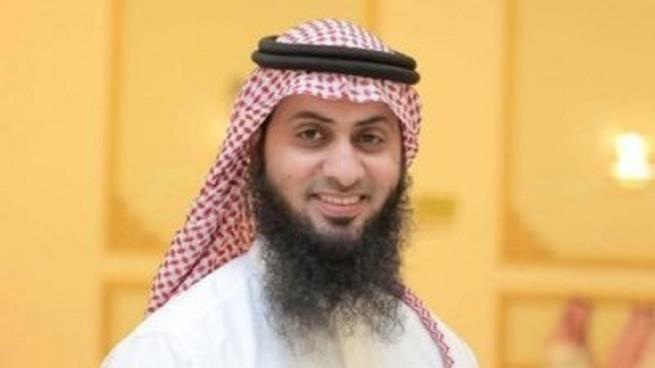
Islamic preacher Nayef al-Sahafi has been subjected to enforced disappearance and his fate remains unknown until now, in light of the campaign launched by Crown Prince Mohammed bin Salman, against members of the “Awakening”.
Human rights sources said that the al-Sahafi had been forcibly disappeared for a long time, and his fate remains unknown until now, holding the Saudi authorities fully responsible for his life and safety.
Nayef has never practiced any political or human rights activities. His activities are limited to the so-called religious vocation among adolescents and young people, but his rhetoric from the Awakening religious movement has made him vulnerable to arrest as part of Crown Prince Mohammed’s fierce campaign. Bin Salman, against the members of this movement, which was described as threatening the legitimacy of his rule.
The Saudi authorities brought the preachers Salman al-Awda, Ali al-Omari and Awad al-Qarni to trial and prosecutors and demanded their execution.
Hundreds of detainees in the Kingdom are subjected to enforced disappearance. The regime is hiding many detainees in a series of secret prisons and apartments belonging to the State Security Agency, amid suspicions that many detainees were tortured and killed, according to the human rights organization Al-Qast.
Meanwhile, the Saudi authorities threatened the son of Saudi preacher Salman al-Awda because of his human rights activities aimed at exposing arbitrary arrests and torture practices in his country, and the black human rights record of the Saud regime.
Abdullah al-Odah, in an interview with the American channel “PBS”, said that the Saudi government is sending him messages constantly, threatening him that what he does “will be reflected in their dealings with the parents of the detainee.”
“Every day I continue to receive threats of imprisonment next to my father, through Twitter accounts linked to the Saudi government.”
Abdullah al-Awda is leading a massive human rights campaign in international forums, demanding the release of his father and detainees in the prisons of the Saudi authorities, which seems to have disturbed the Saudi authorities.
Al-Awda comes after the US Federal Bureau of Investigation (FBI) published photos of two Saudi suspects of spying for Riyadh on a wanted list, one of whom worked on the popular social networking site Twitter.
Late on Thursday, the FBI website reported some details of Saudi nationals Ahmed al-Mutairi and Ali al-Zubara, as well as posting their photos, accusing them of using Twitter for the benefit of the authorities in the Kingdom.
Salman al-Awda was arrested in September 2017 after writing a tweet expressing his delight at reports of a contact between Qatar’s Emir Sheikh Tamim bin Hamad al-Thani and Crown Prince Mohammed bin Salman al-Saud.
The Public Prosecution, led by Saud al-Mujab, charged “al-Awda” with 37 charges during a session of the Specialized Criminal Court in the capital Riyadh, in addition to the preacher Ali al-Omari and the preacher Awad al-Qarni, who were arrested days after the arrest of al-Awda, on charges of “terrorism”.
Since Crown Prince Mohammed bin Salman became crown prince, the Saudi authorities have launched a wave of arrests of hundreds of officials, princes, preachers, political opponents, and even liberal and liberal activists.
Bin Salman has used various methods of intimidation and intimidation against those who oppose him, and has brought about many of the unprecedented changes in his country that have undermined human rights and freedom of expression in the Kingdom.
The September detainees live in poor humanitarian conditions, according to human rights organizations concerned with the file of detainees in the country, where many of them, including Salman al-Awda, suffer from several chronic diseases, and the authorities did not respond to the calls of the families of the detainees to allow them to see them or know their whereabouts. Few cases are excluded.
Saudi authorities hold most of the “September detainees” in unknown locations and private apartments belonging to the State Security Service, a body set up by Mohammed bin Salman to run arrests against his opponents.
However, a number of detainees remain in al-Hayer prisons in Riyadh, and two in Jeddah, the two most prestigious political prisons in the country.
A UN report said the Kingdom was abusing its broad anti-terrorism law to silence peaceful dissent, prevent freedom of expression and imprison critics, as well as accusations that some were tortured.
The report called on the Saudi authorities to amend the law to bring it into line with international standards, to stop “brutal and public” executions, and to investigate allegations of torture of detainees.

